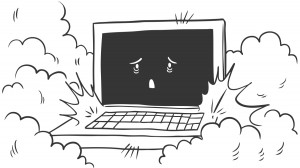Many of the home inspectors who attend my home inspector training with the Law and Disorder Seminar are shocked, shocked to hear me say that their corporate entities, be they Subchapter S or Limited Liability Corporations, do not insulate them from personal liability for conducting a negligent home inspection.
For my part, I am shocked, shocked that they could possibly believe that. And to an individual, they absolutely swear to me that that is exactly what their attorneys told them when they formed their corporate entities. And even if that is not what their attorneys told them, it most definitely is what they heard.
Corporations do protect their shareholders from personal liability for obligations of the corporation, for example business loans or credit obligations to a supplier or a landlord. Thus, if the corporation defaults on a bank loan or a lease, the creditor can not look to the shareholders for payment. That is the reason that banks, suppliers and landlords, if they are even half-way sophisticated, always require loans, credit lines and leases to corporations to be personally guaranteed by the corporation’s owners. That is often true even for closely held corporations that have high credit ratings and substantial retained earnings on their balance sheets.
(more…)
 Instead of using a lot of paper, rely on an electronic version for your own records. There are various free electronic storage options that are beneficial to home inspectors, who are looking to store 250-plus inspection reports, along with corresponding photographs.
Instead of using a lot of paper, rely on an electronic version for your own records. There are various free electronic storage options that are beneficial to home inspectors, who are looking to store 250-plus inspection reports, along with corresponding photographs.